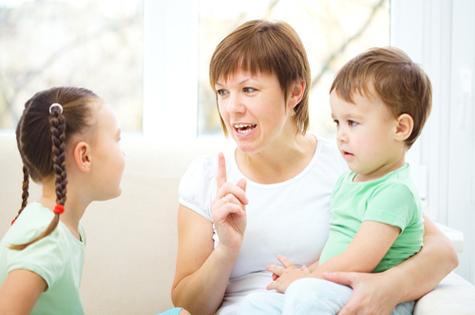A major education study 20 years ago found that by age 3, children from lower socio-economic group families had heard 30 million fewer words than children from other families. This led to pressure for increased funding support for pre-school programs and campaigns urging parents to chat as much as possible with their children.
But research concluded last year shows that it’s not so much how many words that kids hear, but the interactions around the words that matters - quality is more important than quantity. For example, it’s more important for a 2-year-old to understand the context and meaning of words such as:
- “Look, a dog!”
- “Want a bottle after your bath?” and
- “Yes, that’s a bus!”
rather than having more words to describe the same things.
“It’s not just about shoving words in,” said Kathryn Hirsh-Pasek, Professor of Psychology at Temple University in the USA and lead author of the study.
“It’s about having these fluid conversations around shared rituals and objects, like pretending to have morning coffee together or using the banana as a phone. That is the stuff from which language is made.”
In a related study, researchers who observed 11- and 14-month-old children in their homes found that the prevalence of one-on-one interactions and frequent use of ‘parentese’’ — the slow, high-pitched voice commonly used for talking to babies — were reliable predictors of language ability at age 2. The total number of words had no correlation with future ability.
Professor Hirsh-Pasek said that focussing on the quantity of words may be oversimplification of the challenges facing children from disadvantaged backgrounds.
“I worry about these messages acting as though what parents ought to focus on is a word count, as though they need a Fitbit for words,” she said, referring to the wearable devices that tally steps.
Not everyone agrees with the findings. Other experts who urge parents to talk to their children more say that increased quantity of language inevitably leads to better quality.
“It’s not that one mother is saying ‘dog’ and the other is saying ‘dog, dog, dog,' ” said Anne Fernald, a psychologist at Stanford.
“When you talk more, you tend to speak in more diverse ways and elaborate more, and that helps the child’s cognitive development.”
“People emphasise the quantity because that’s what you can measure,” she said.



















__small.png)










